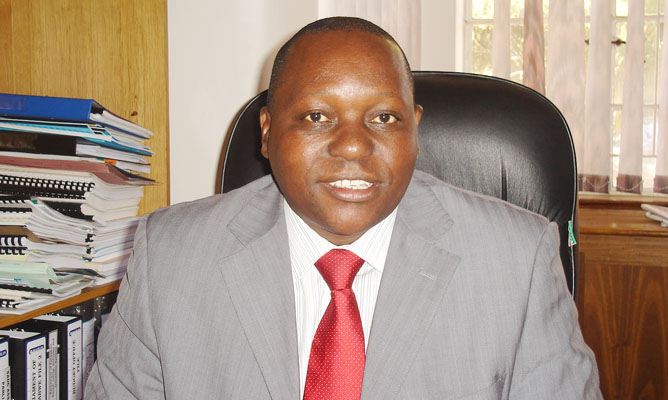
One of the key highlights in the National Assembly this week were the rulings by the Speaker on matters of privilege raised by the portfolio committees of Youth, Indigenisation and Economic Empowerment and Mines and Energy.
The Mines and Energy Committee, then chaired by Zanu PF’s Lovemore Matuke, last year raised a point of order against State Procurement Board chairperson, Charles Kuwaza, for undermining the role and authority of the committee when he allegedly refused to be examined or answer questions from members despite his commitment to do so in a previous meeting. The Speaker, Jacob Mudenda, ruled that the conduct of Kuwaza constituted a prima facie case of contempt of Parliament, and that an ad hoc parliamentary committee had to be established to inquire into the matter.
The Youth, Indigenisation and Economic Empowerment Committee alleged that the Minister of Local Government, Public Works and National Housing, Saviour Kasukuwere had threatened the committee chairperson, Justice Wadyajena when he appeared before the committee to give evidence on the controversial Zimunya-Marange Community Share Ownership Trust. The committee felt that the minister’s conduct was in violation of offences as listed in the schedule to the Privileges, Immunities and Powers of Parliament Act (Chapter 2:08). The Speaker ruled that on the balance of probabilities, the facts as presented by the committee, did not establish sufficient evidence to make a case against the minister.

These cases are significant in that some of the portfolio committees are demonstrating the desire to assert themselves in the governance system. The general attitude by some senior government officials towards Parliament has been very negative. Several are reluctant to appear before committees or produce the required documents. Such behaviour violates provisions of the Standing Orders and the Privileges, Immunities and Powers of Parliament Act. According to the Standing Orders, the committees have powers to summon any person to appear before them to give evidence on oath or affirmation; summon any person except the Head of State to appear before them and produce any documents required, among other powers. Failure to do so can result in one being charged under contempt of Parliament.
While Kasukuwere has escaped potential contempt of Parliament charges, it looks like Kuwaza is in trouble. The ad hoc committee being established will carry out further investigations and reach a verdict that will be tabled in the House for debate. Provisions of the Constitution and the Privileges, Immunities and Powers of Parliament shall be invoked if the verdict is approved by the House.
Section 148 of the Constitution provides that an Act of Parliament may define other privileges, immunities and powers of Parliament and its members and officers; define conduct which constitutes contempt of Parliament — whether committed by Members of Parliament or other people — and provide for a right of reply, through the Speaker or the President of the Senate, as the case may be, for persons who are unjustly injured by what is said about them in Parliament.
The Constitution, however, does not allow such an Act to permit Parliament or its members or officers to impose any punishment in the nature of a criminal penalty, other than a fine, for breach of privilege or contempt of Parliament.
The General Laws Amendment Bill, currently before Parliament, makes two amendments to the Privileges, Immunities and Powers of Parliament Act. Several sections of the Act have been amended to give Parliament power to impose not only fines for contempt of Parliament, but also advise the courts to imprison someone for up to two years in default of payment of the fines.
- Chamisa under fire over US$120K donation
- Mavhunga puts DeMbare into Chibuku quarterfinals
- Pension funds bet on Cabora Bassa oilfields
- Councils defy govt fire tender directive
Keep Reading
What this means is that if a person who has been convicted of contempt fails to pay the fine imposed by Parliament, he or she will have to serve the period of imprisonment which Parliament has specified as a default punishment. Put differently, if a person fails to pay a fine imposed by Parliament, the Clerk of Parliament will send a document to a court setting out the sentence that was imposed on the person, and the court will be obliged to sentence the person, apparently in his or her absence, to the term of imprisonment imposed by Parliament in default of payment of the fine.
Charging a high ranking public official with contempt of Parliament will, therefore, send the right signals to the rest of them that Parliament, as an elected and representative body, should be taken seriously. Public officials must exercise a high degree of transparency in their conduct. Appearing before parliamentary committees to answer questions regarding their areas of jurisdiction is one way of exercising such transparency. Failure to do so, or refusal to divulge information which is in the public interest, is a violation of the principles of transparency, accountability and personal integrity.
Public officials must acquaint themselves which Chapter nine in the Constitution which speaks to the basic values and principles governing public administration. One of the values and principles is that public administration must be accountable to Parliament and to the people. Section 198 (d) says an Act of Parliament must provide measures to enforce provisions of Chapter nine, including providing for the disciplining of persons who contravene the provisions.
Contempt of Parliament charges is one such disciplining measure and must be applied by Parliament without fear or favour.
l John Makamure is the Executive Director of the Southern African Parliamentary Support Trust. Feedback: [email protected]











